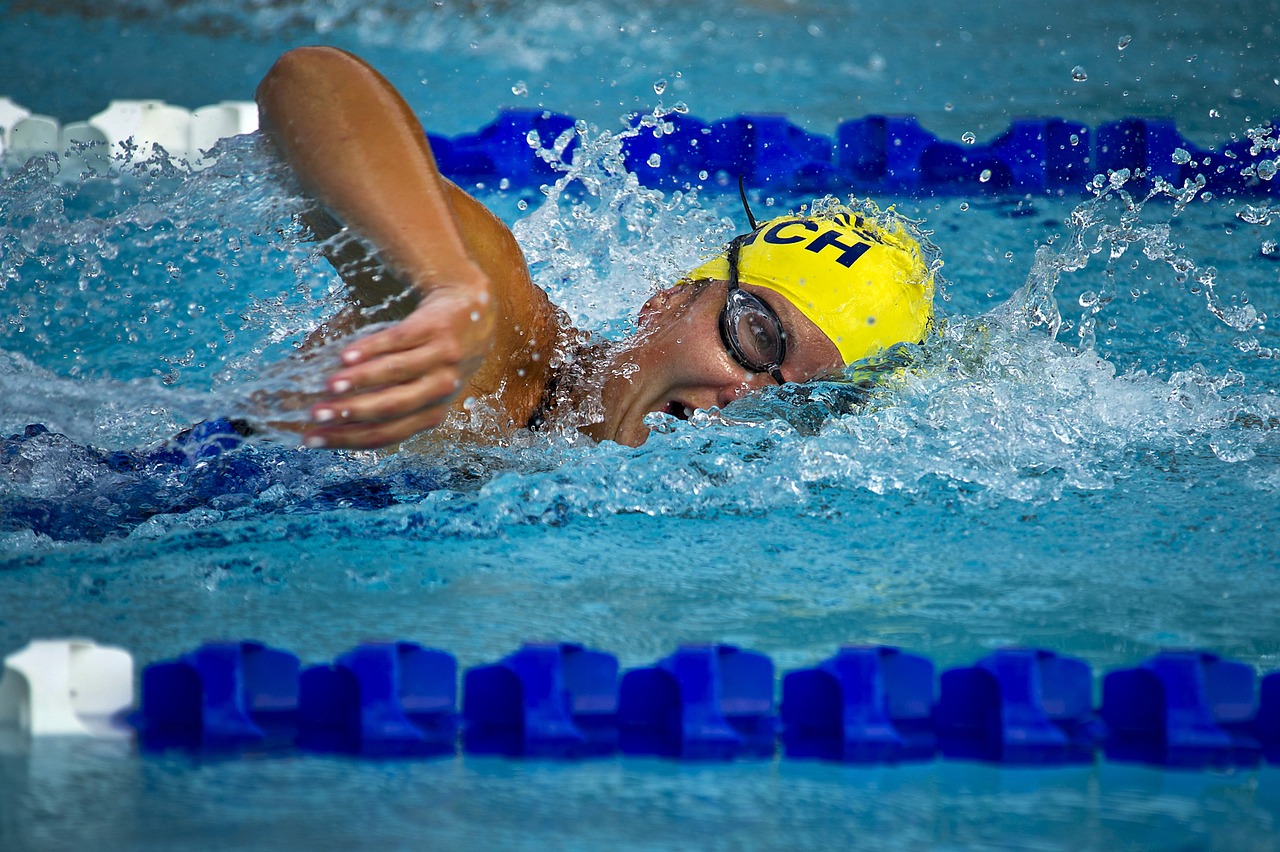Swimming, often hailed as one of the most holistic forms of exercise, has been the subject of much debate in the fitness community. One common question many enthusiasts and sceptics alike pose is, «Does swimming build muscle?»
This article dives deep into this query, shedding light on the relationship between swimming and muscle development, and providing insight into how this aquatic exercise affects our physique.
Contents
Does Swimming Build Muscle or Just Tone Them?
The straightforward answer to the question «Does swimming build muscle?» is yes, but with caveats. Swimming engages multiple muscle groups simultaneously, offering a full-body workout. However, the extent to which swimming builds muscle mass, as opposed to toning, depends on various factors:
- Intensity and Duration: Just like any other exercise, the intensity and duration of your swim determine muscle growth. Sprinting in the pool will engage fast-twitch muscle fibres, promoting muscle growth more than leisurely laps.
- Technique: Different strokes focus on different muscle groups. For instance, the butterfly focuses on the chest and shoulders, while the breaststroke gives the inner thighs a good workout.
- Frequency: Swimming occasionally might not yield significant muscle growth. However, incorporating swimming into a regular fitness routine can help in muscle development over time.
What Muscles Does Swimming Work the Most?
Swimming is a full-body workout. However, the primary muscles it targets include:
- Latissimus Dorsi (Lats): These are the broadest muscles in the back and are heavily utilised in strokes like the freestyle and backstroke.
- Deltoids: These shoulder muscles play a key role in providing the pulling power in your strokes.
- Pectoral Muscles: Essential for the pushing phase in strokes, especially in the butterfly and breaststroke.
- Quadriceps and Hamstrings: These leg muscles are engaged when kicking, particularly in the flutter kick of freestyle and backstroke.
- Core Muscles: A strong core is vital for stability in the water, making swimming an excellent core workout.
Swimming Body Transformation: What to Expect?
Many take up swimming hoping for a transformative change in their physique. But what can one realistically expect?
- Toning: The resistance of water is about 12 times that of air, making swimming a great exercise for toning muscles. Regular swimming can lead to a more defined physique over time.
- Endurance Over Bulk: While swimming builds muscle, it primarily enhances muscle endurance rather than bulk. This is because the continuous resistance of water as one swims for prolonged periods promotes muscle stamina.
- Fat Loss: Swimming is a great cardiovascular workout. Coupled with muscle toning, it can lead to fat loss and a leaner physique.
- Swimmer Body vs Gym Body: A dedicated swimmer’s body might differ from someone who primarily lifts weights. Swimmers often have lean, toned muscles, particularly in the upper body and core, whereas weightlifters might exhibit more bulk.
Benefits of Swimming in the Morning for Muscle Building
Swimming in the morning has some unique benefits, especially concerning muscle building:
- Increased Metabolism: An early morning swim can jump-start your metabolism, which not only aids in fat loss but also promotes muscle recovery and growth throughout the day.
- Boosted Blood Flow: Swimming in the morning can enhance blood flow, ensuring that muscles receive adequate nutrients, aiding in recovery and growth.
- Higher Testosterone Levels: Testosterone levels are generally higher in the morning. Since testosterone promotes muscle growth, a morning swim can potentially maximise muscle-building benefits.
In conclusion, to the pressing query, «Does swimming build muscle?»—yes, it does, but its results are more skewed towards muscle toning and endurance rather than bulk. Coupled with benefits like cardiovascular health, flexibility, and joint health, swimming emerges as a comprehensive workout, irrespective of your muscle-building goals. While it might not replace weight training for those aiming for significant bulk, it’s an indispensable tool in the fitness repertoire for holistic health and a lean, toned physique.

